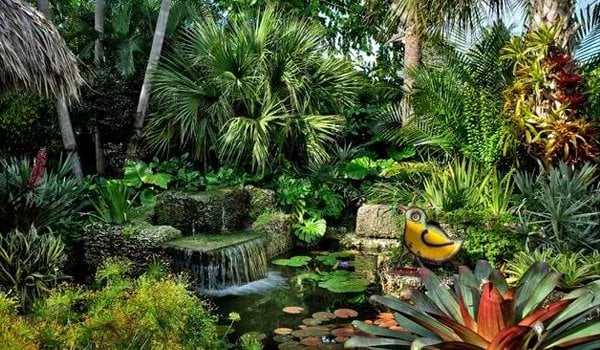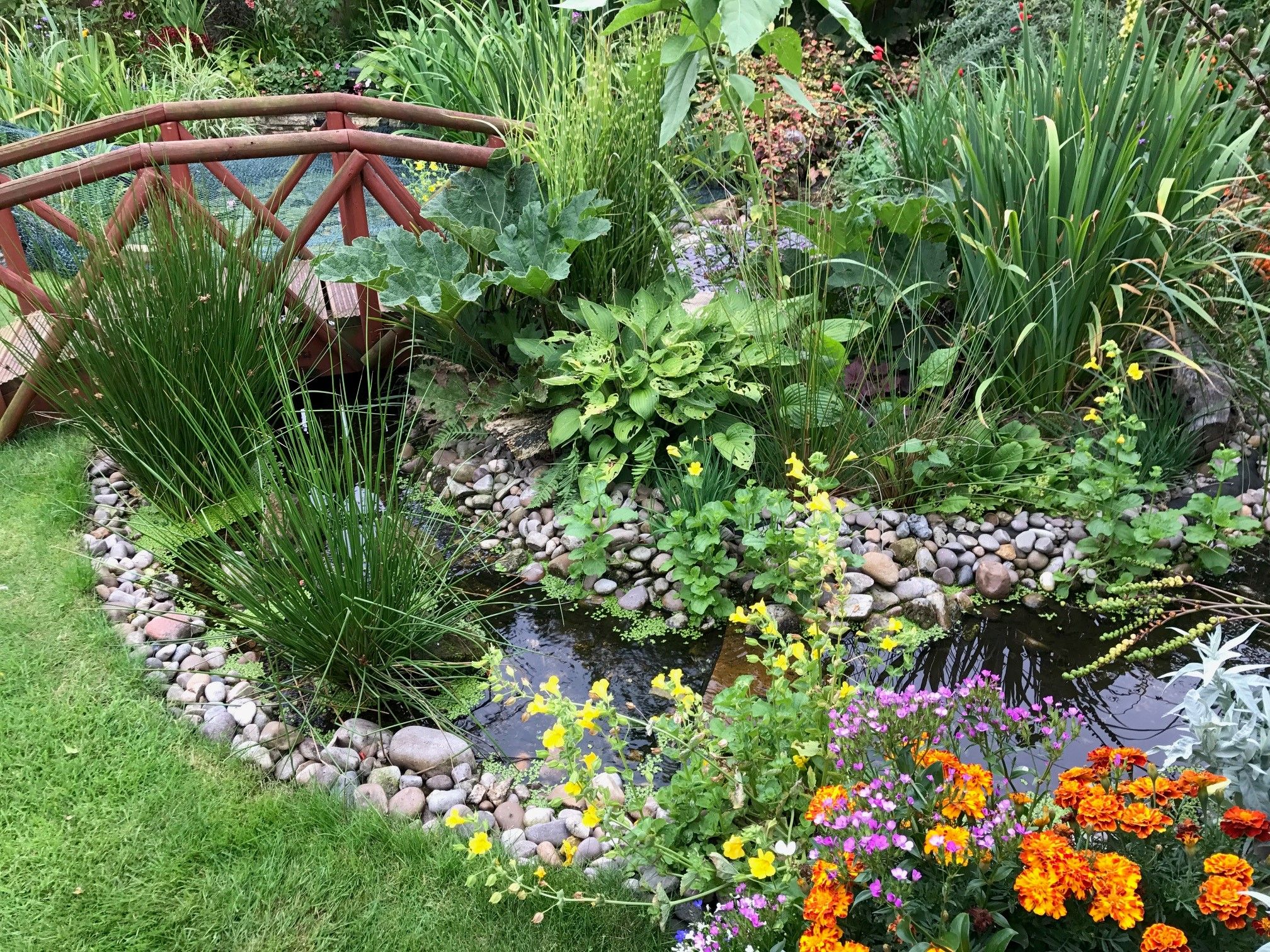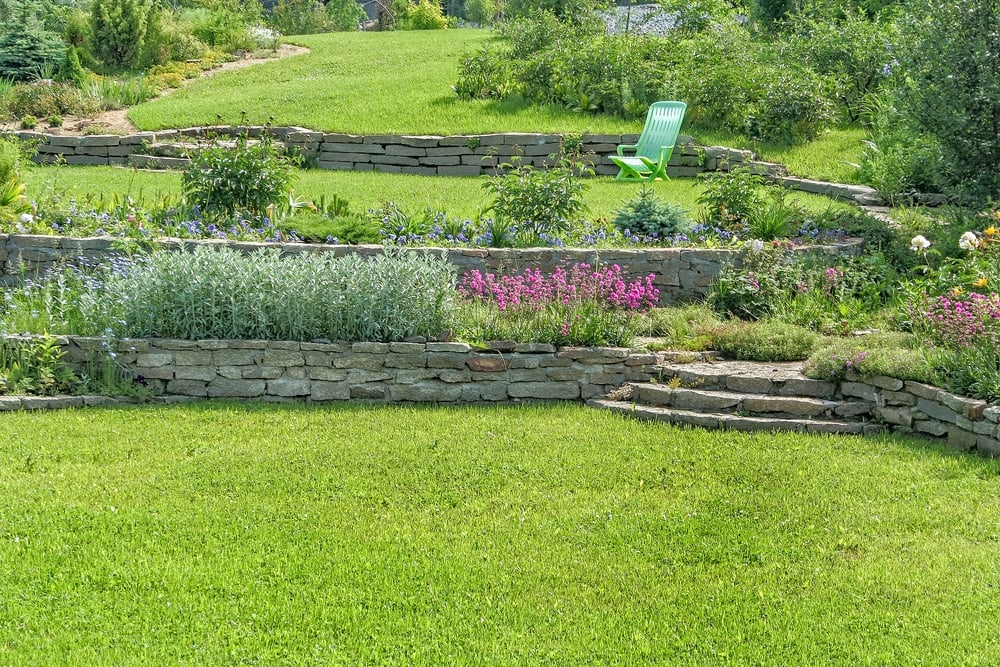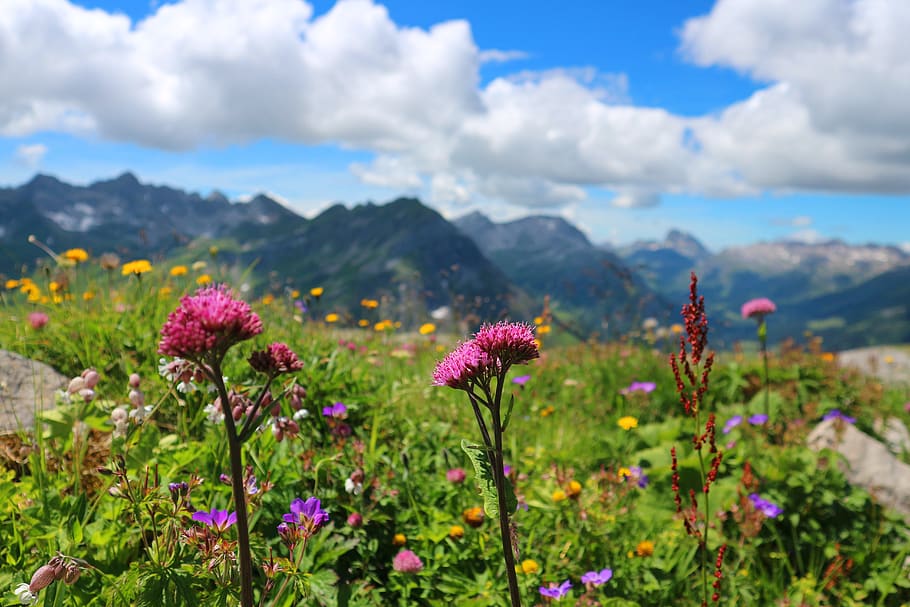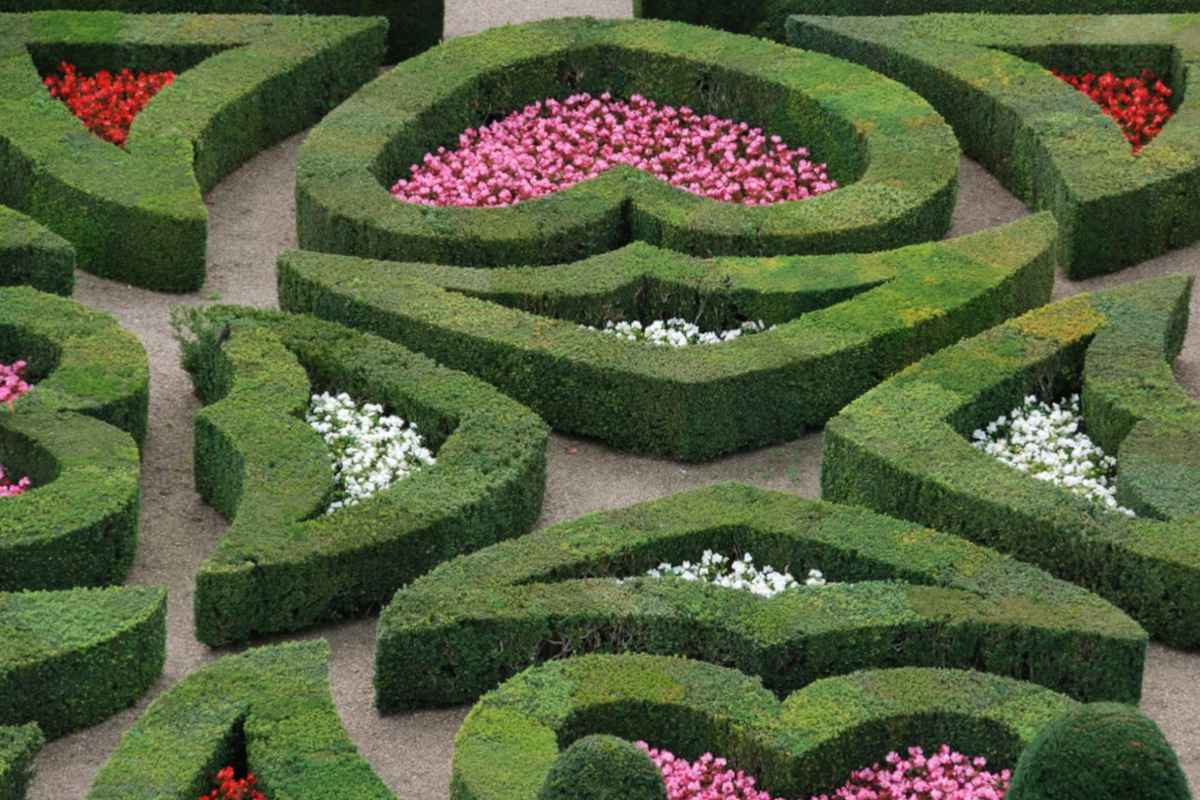18 Tall & Beautiful Garden Screening Plants
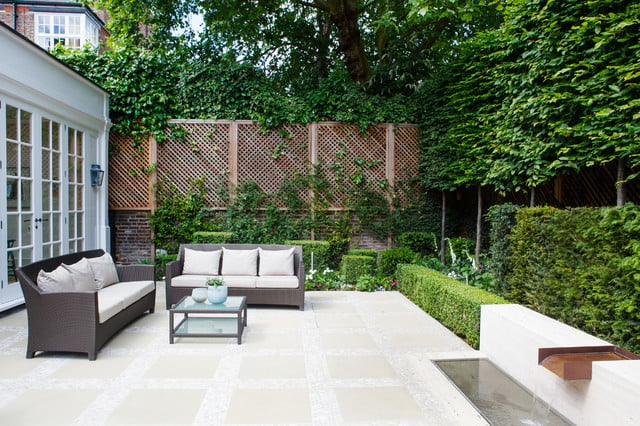
Table of Contents
If you want to create privacy using screening plants in your garden, there are various factors for you to consider. You have to determine the required height and coverage duration of your screen and make sure to find the suitable soil type, maintenance level, and growth speed which you would be willing to handle. After considering the practical aspects of creating screening plants in your garden, it is equally important to consider your screen’s visual impacts.
Whether you want it to blend in or simply serve as a hindrance, or just want it to stand out as a focal point in your garden. With all of these in mind, you can choose the best screening plants. Upright shrubs can be used to add a decorative touch to your garden if you plant them in a row along your fence. They have an erect shape and can act as a privacy screen. These shrubs come in a variety of shapes and foliage types, and many require minimal pruning to maintain their narrow growth habit, making them ideal for urban or suburban gardens.
There are various options to choose from, and here is a list of 18 of the best plantswhich could help in narrowing down your selection.
1. Arborvitae Shrub
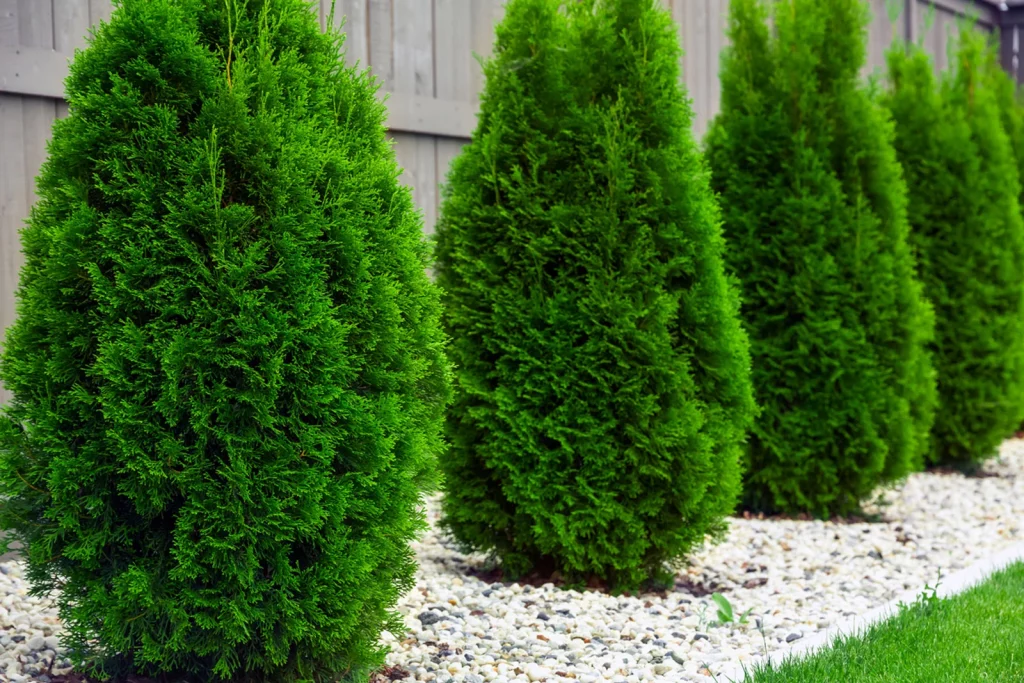
These are popular evergreen shrub that acts as a screening plant. They are well suited for creating privacy fences and also prefer well-drained soil and a dry environment, and it grows best in full sun. They have thick foliage that creates a dense hedge when properly spaced and are available in a variety of sizes, from dwarf to giant. Abroviate is a hardy plant that tolerates most soil conditions and requires minimal maintenance and can easily be found at most garden centres and home improvement stores. This plant is ideal for creating tall privacy screens of various heights and widths to suit your space.
2. Lilac Screening Plant
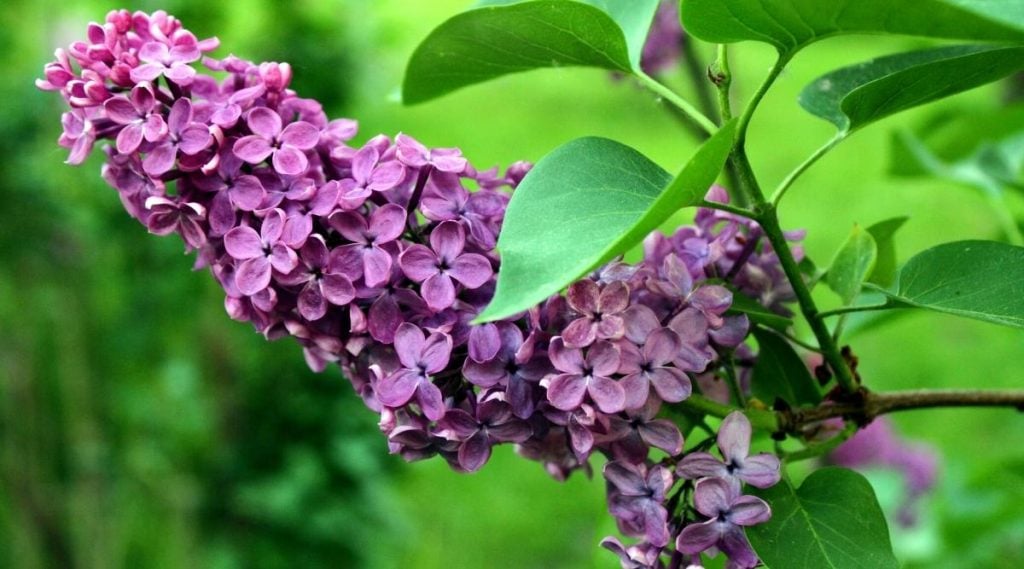
These are small flowering trees that grow in gardens and parks, with some reaching up to 10 meters in height while others max out at 2 meters only. Their leaves are heart-shaped and bright green in colour, and they bloom with lilacs; each plant needs enough space to grow and spread and should get at least 6 hours of full sunlight every day. For best results, planters can purchase bare-root specimens in winter and plant smaller varieties 2 to 4 feet apart. It may take time for them to fill in the gaps, so a temporary fence may be needed.
3. Star Jasmine
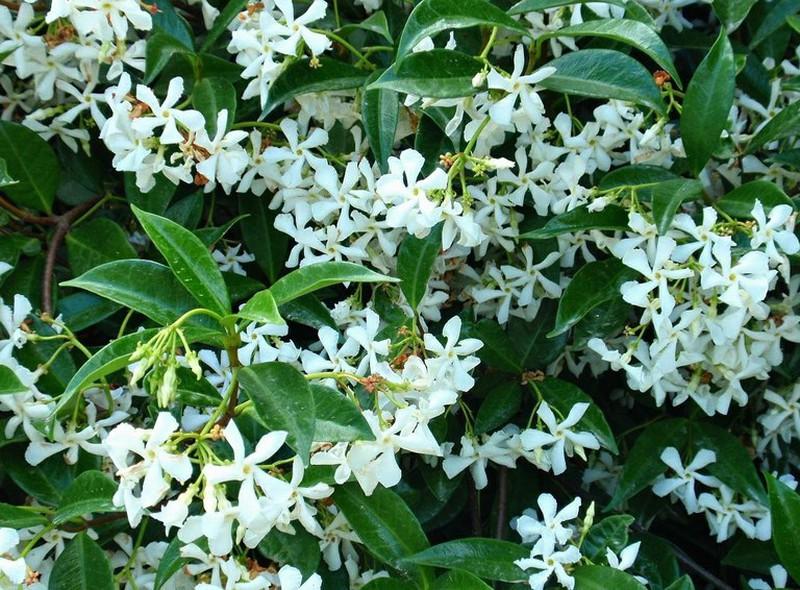
This is a woody vine that can climb trees and other vertical structures in search of light. It is most of the time overlooking at the time when planters design the perimeters. When the shoots evenly grow across the surfaces, they create a maze-like pattern of leaves that serves as a natural screen by providing privacy to the backyard. Star Jasmine can give off a uniquely fragrant scent when they get mature, and even the essential oil of these plants is used in making perfumes and incense. The flowers can be abundant enough to block a good portion of the deep green leaves,
4. Skip Laurel
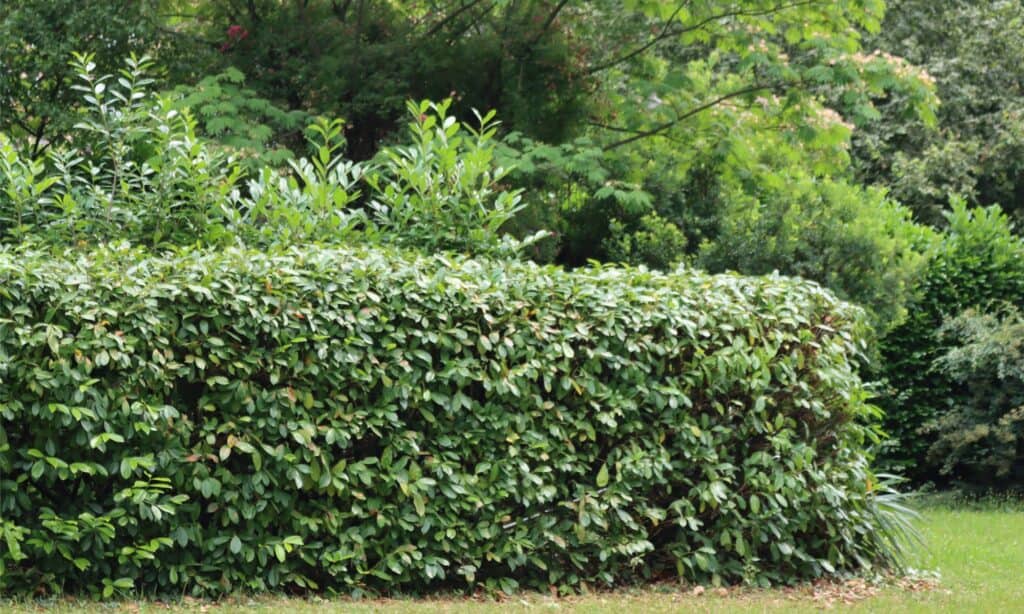
Skip Laurel is an ideal option for gardeners who are willing to put in their effort to maintain their plants. With regular pruning, trimming, and shaping, they can be kept in dense evergreen foliage, making them a perfect 10-foot-tall privacy screen. If planted in well-drained soil and a sunny location, it produces beautiful white blooms in the spring. Gardeners should keep in mind that skip laurel may not be suitable for all climates and soil types, so it is best for them to seek advice from the experts at your local stores before purchasing.
5. Privet
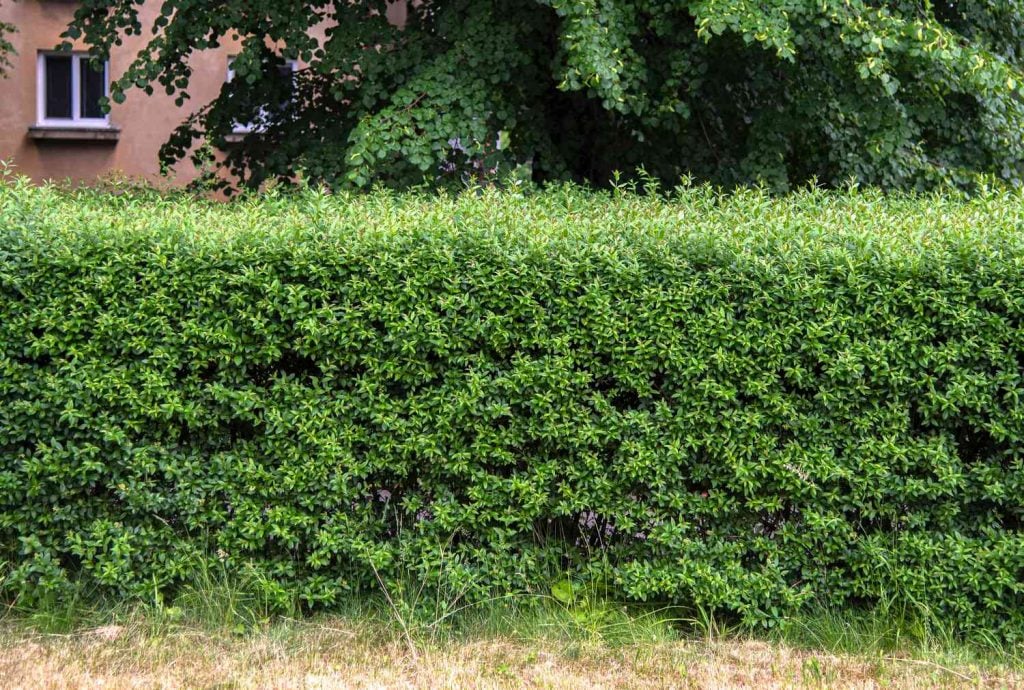
A fast-growing privet is a great option for those looking for privacy in their outdoor space. It is a type of shrub with dark green, semi-evergreen leaves that grow well in partial sunlight. It requires at least 4 hours of uninterrupted sunlight per day and can even survive in partial shade as well. With proper care and the environment, it can quickly grow to provide privacy. The fast-growing privet can increase its height by 2 to 3 feet every year, but it requires consistent pruning to keep its appearance and shape consistent too. It can be grown as a hedge, producing fragrant white flowers in spring from May to early June.
6. Boxwood
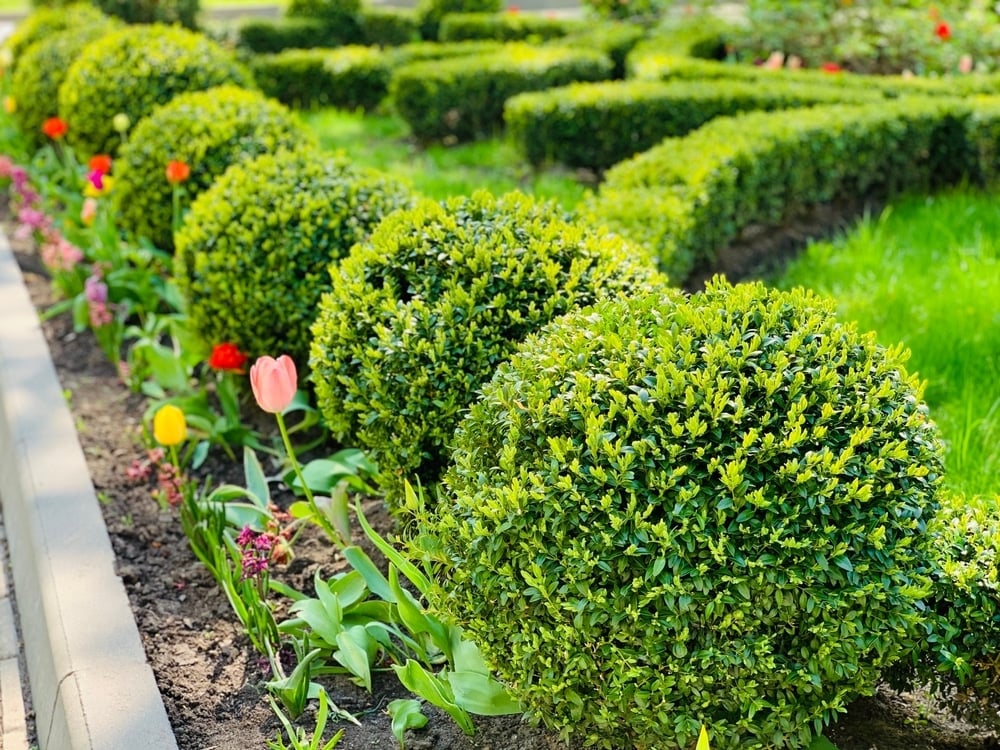
These are popular plants for decoration in formal gardens due to their versatility in pruning and shaping. Though they grow slower than other screening plants, it requires the least care and can be clipped into any desired design. It thrives in full sun and colder climates with average rainfall. They are deer resistant. They come in deep green in colour and various white and gold variations. Boxwoods can be used as screening plants or privacy bushes or can be grown freely up to 20 feet tall, creating a lush scenery and a living wall. They can also be grown in containers as well as a fence.
7. Yew
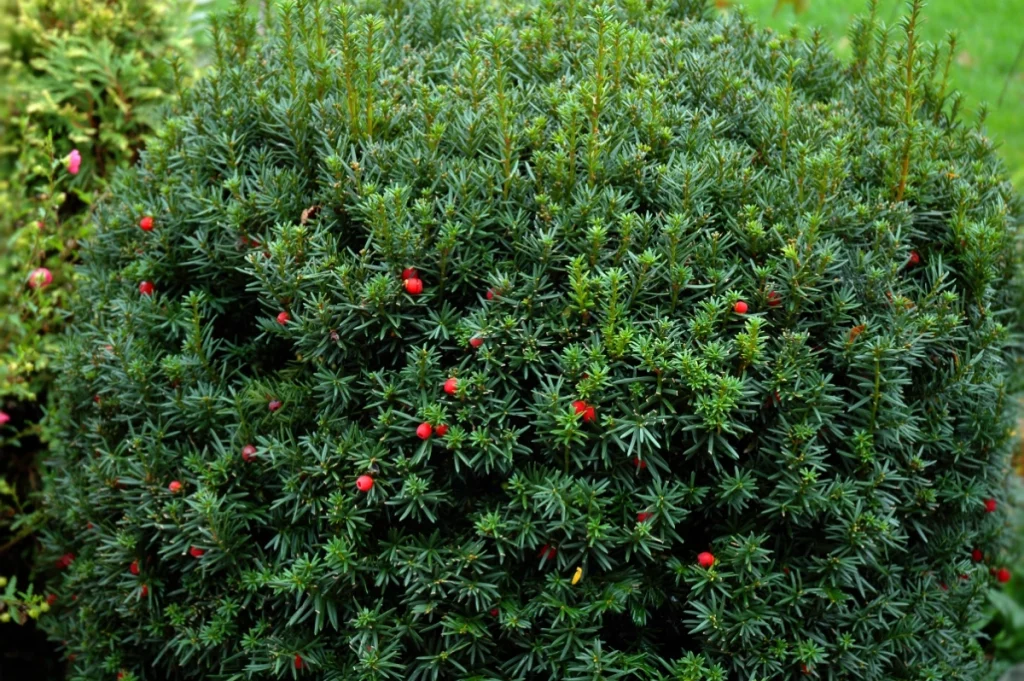
Yew is a resilient evergreen plant that comes in several types. The fastest-growing plant variety of Yew is Densiformis Yew. They can thrive in both hot and cold climates and prefer partial shade rather than full sunlight. These plants are known for their broad spread and can grow up to 4 feet tall. They are easy to prune into various shapes. Hicks Yew may not be showy, but it provides greenery to the backyard of the gardeners, making them a practical option for privacy screening and living fences. They offer a dense evergreen background for the yard and are low maintenance. Their soft needles and red winter berries make them a visually appealing addition to the garden.
8. Arrowwood Viburnum
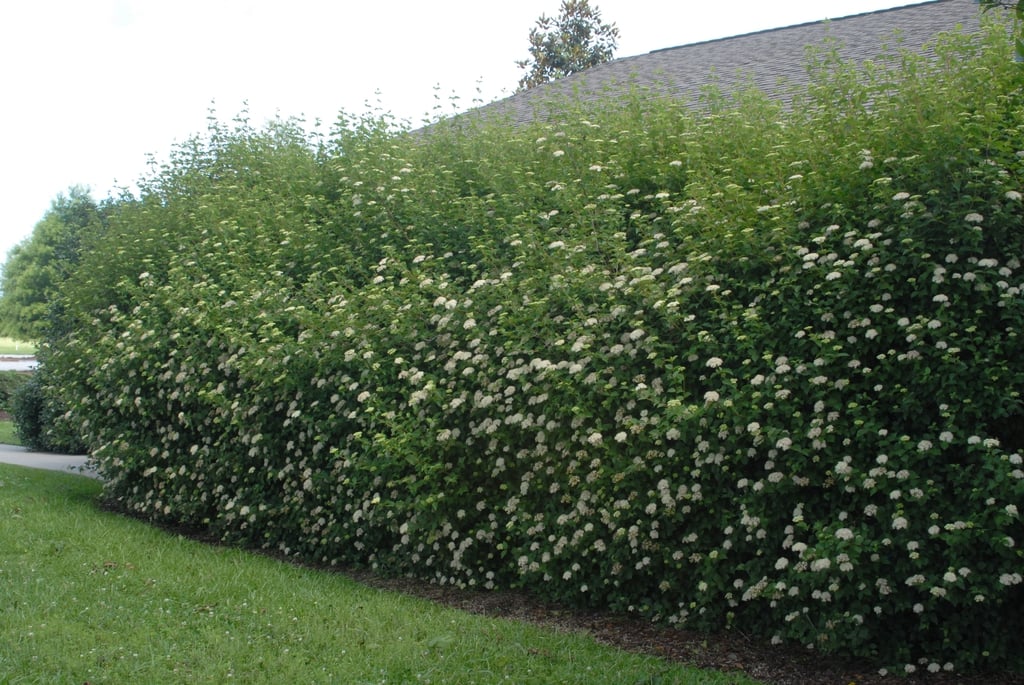
Viburnum, also known as arrowwood, is a shrub that can be deciduous or evergreen. They grow to a decent height and provide excellent coverage in a garden, making them unsuitable for smaller spaces. V Dentatum is a popular variety that produces beautiful white flowers in late spring and lush green foliage that changes into browns, yellows, and oranges. They often attract bees, butterflies, and other pollinators, making them environmentally friendly and visually appealing while providing privacy. These are one of the best screening plants for gardeners to choose from.
9. Clematis
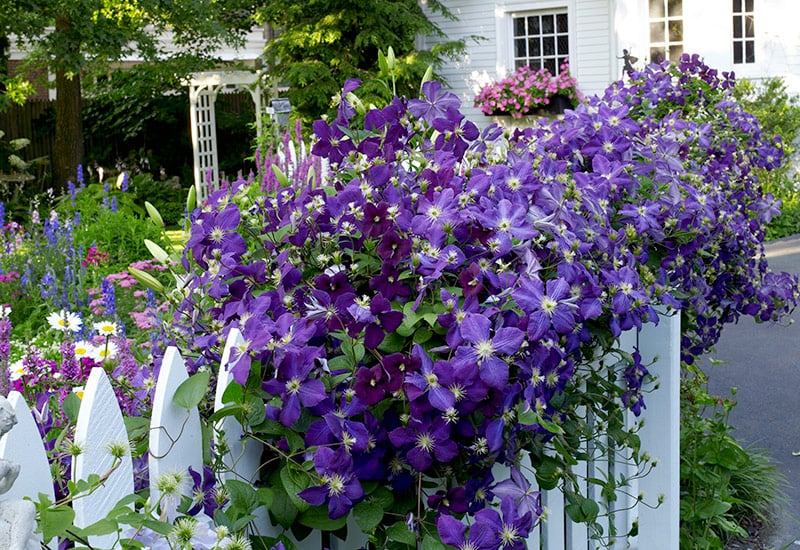
They are a type of climber that can grow up to 2 to 4 meters in height. Their hardiness rating varies, and they prefer slightly alkaline soil. They are a great option for providing privacy and a good choice as screening plants. With a wide range of varieties available, growers can choose from different colours of purple or pink flowers to match their gardens’ aesthetics. For optimal growth, it is recommended to keep the roots in the shade while exposing the upper parts of the plant to full sunlight.
10. Weeping Willows
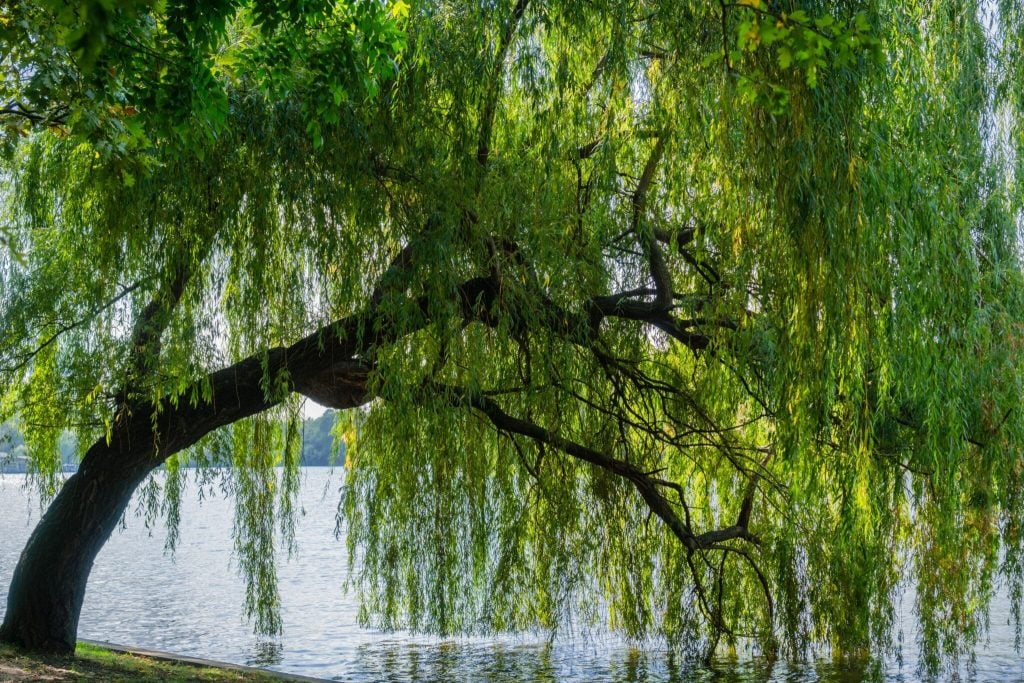
They are gardeners’ popular choice because of their unique and elegant appearance. The long, slender branches of this tree fall downward, creating a curtain-like effect that provides privacy while still allowing light and air to pass through. They are also known for their rapid growth, so they can quickly provide the screening and protection that gardeners require. Moreover, these trees are hardy and can tolerate cold temperatures, making them a great option for those living in colder climates.
11. Dogwood
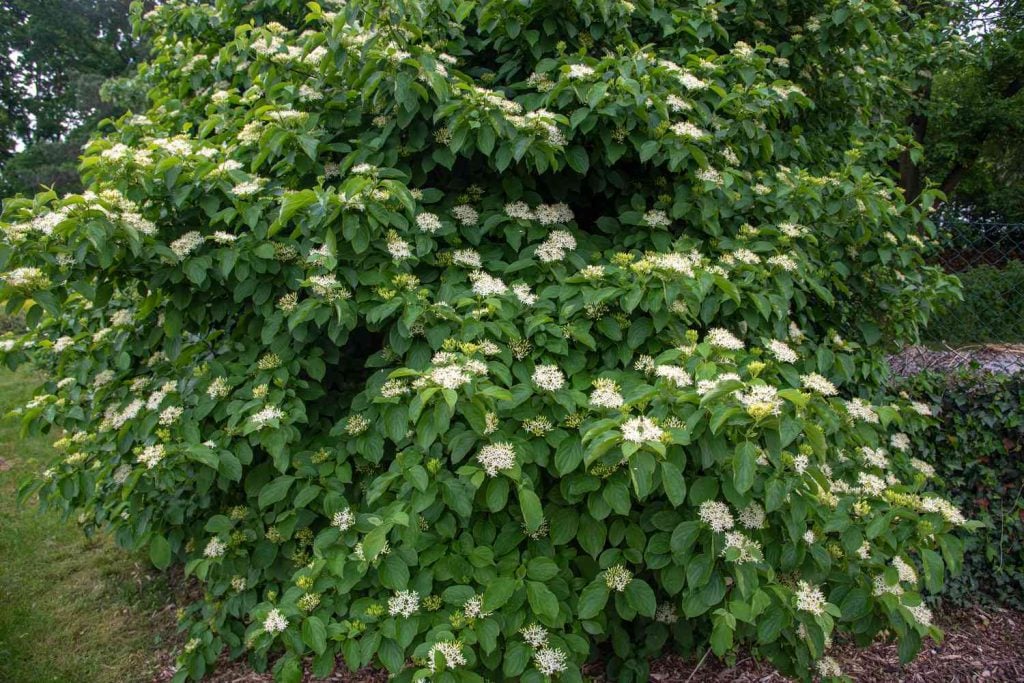
The plant’s preferred conditions are typically moist, well-drained soils and a sunny or partially shaded position. Pruning is key to shaping hedges and keeping them in tip-top condition. And growers need to make sure they cut back any branches which have grown too far and chop off any dead wood in the process. That said, a well-maintained Rhus typhina hedge is one of the most strikingly beautiful options planters could hope to achieve. It is one of the great choices for gardeners who want a beautiful plant that offers year-round interest.
12. Cider Gum
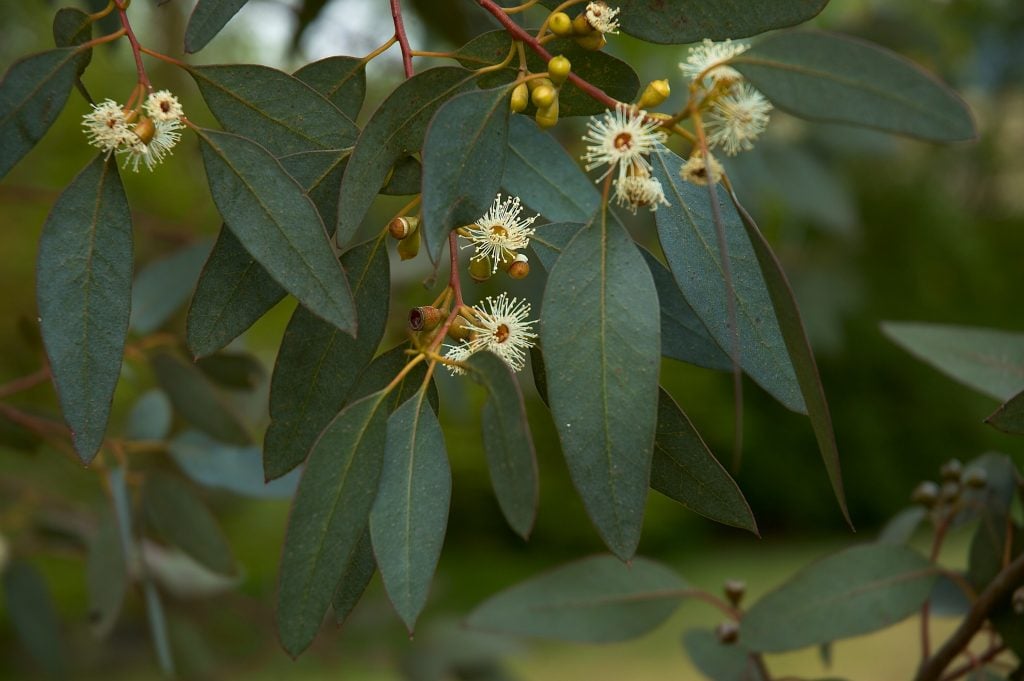
Eucalyptus gunni, commonly known as Cider Gum, is a stunning tree that can grow up to 10m in height, making it a perfect option for those gardeners who are looking to create a tall and impressive living fence or screen. These trees mostly prefer full sun and sheltered conditions, and it thrives in slightly acidic soil. It is also hardy that can withstand frosty and chilly conditions. They can grow quickly and require pruning to maintain their shape and height. However, this effort is well worth it when considering the stunning visual impact this tree can have in the garden of the planters.
13. Holly
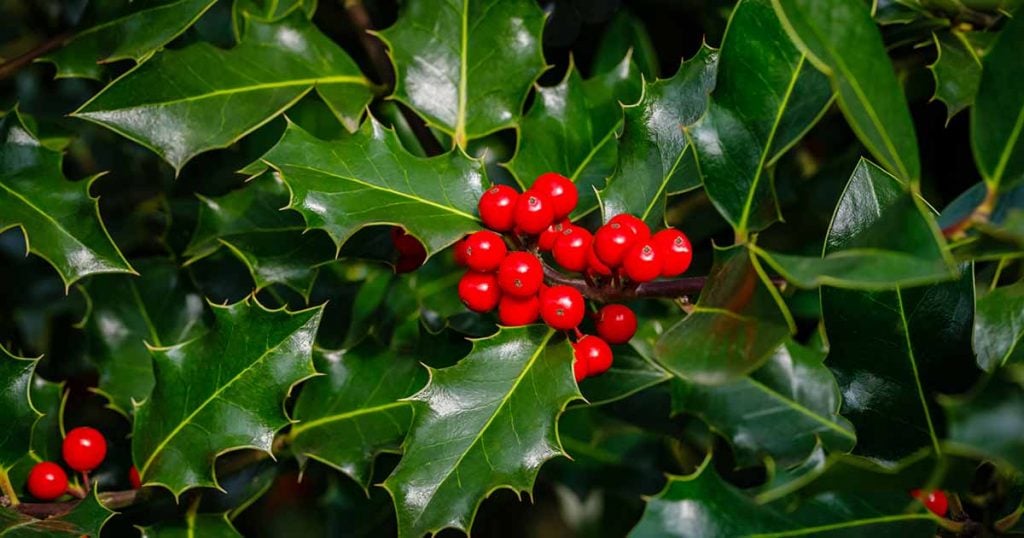
They make excellent evergreen hedges due to their dense spiky foliage. There are several varieties to choose from, each with its own unique characteristics and appearances. These species produce vibrant berries that can add a pop of colour to the hedge during the months of winter. It is important for the planters to keep a note that some of these species are of the type where only female plants produce berries. This is the reason it becomes essential to select both male and female plants to ensure their good production of fruits. Moreover, they can be quite sharp, so it is critical to take them while pruning and maintaining the hedge. Planters need to wear protective gloves and clothes that can prevent accidental injury.
14. Common Ivy
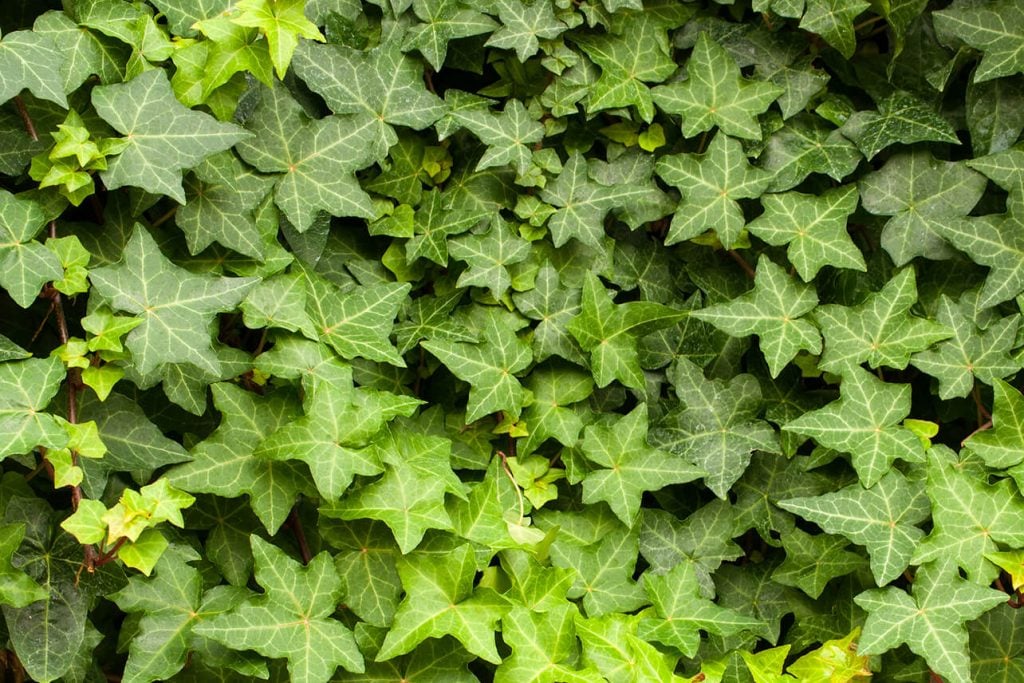
Ivy is a great choice for adding greenery and privacy to outdoor structures, as it can easily be trained to grow up a trellis. The dense foliage of this plant also provides a good hindrance for wildlife. It is recommended to keep these plants in check as they can spread quickly and could become overgrown if they are left unchecked. Regular pruning and maintenance would help to keep them under control and also to look their best. Moreover, they do not harm the trees or shrubs it climbs on; instead, they provide a habitat for many different types of wildlife, including insects and birds.
15. Orange Rocket Barberry
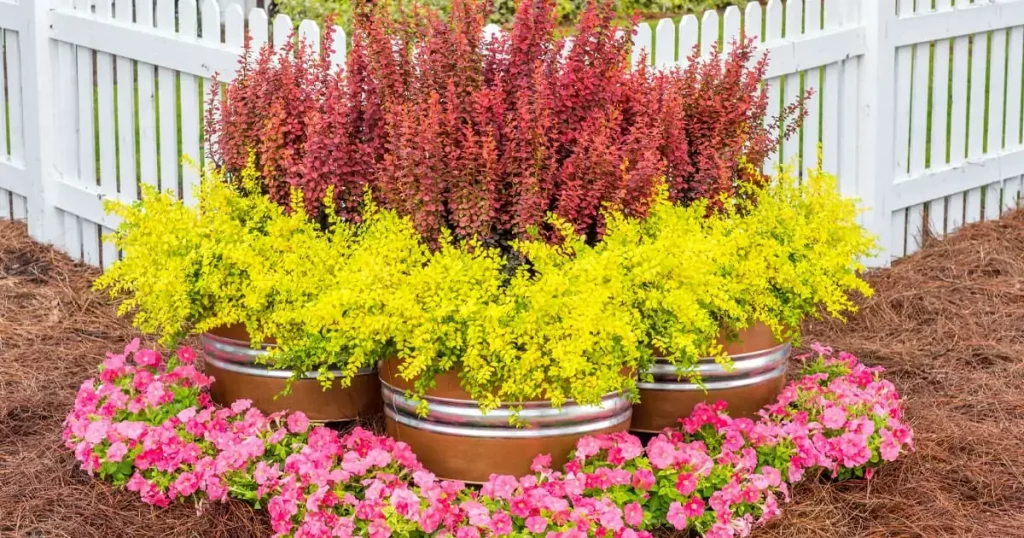
They are compact and upright shrub that brings warm and vibrant colours to any small garden. Their orange-red foliage can be a focal point, and their vertical branches form a dense barrier to privacy. They have small yellow flowers in the time of spring which turns into red berries during the fall. They attract birds to the garden. During the winter, they also have red spiny stems that deter intruders. Also, they are low maintenance and are suitable for containers or pots. They can tolerate any type of soil and weather conditions.
16. Golden Cone
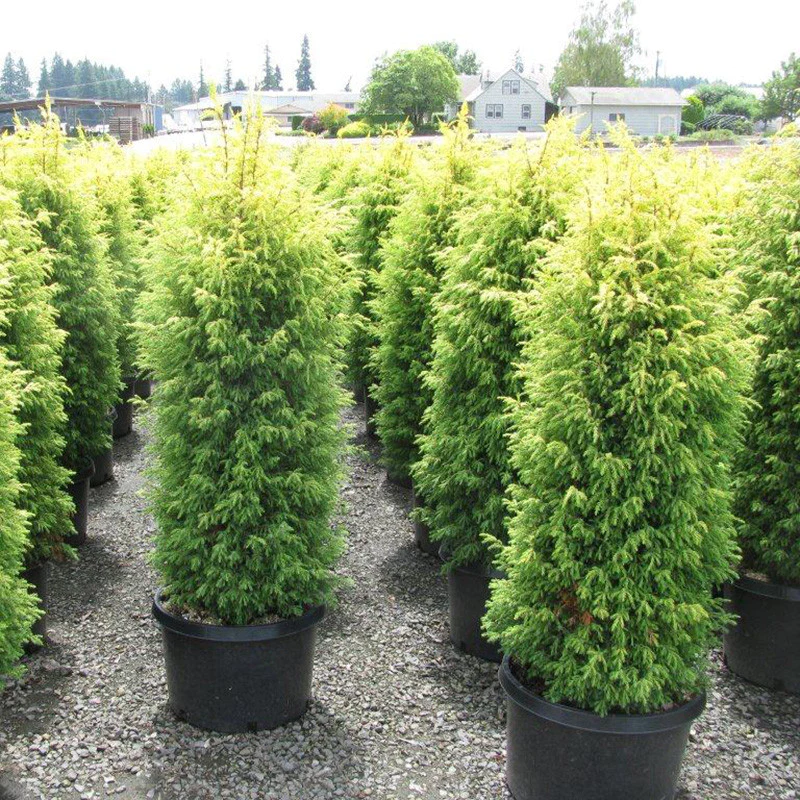
They are evergreen conifer shrubs with a conical shape perfect as screening plants for the small garden. They can also act as the ones that can add structures and interest to the yard of the planters. They have bright golden foliage in spring that fades to a green tint later in the season. Their soft needles form a dense and delicate mass. Golden Cone is also a plant that needs minimal care and can be used for creating borders, hedges, foundation planting, or as an accent plant. They can thrive in well-drained soil with a pH from mildly alkaline to mildly acidic.
17. Leyland Cypress Tree
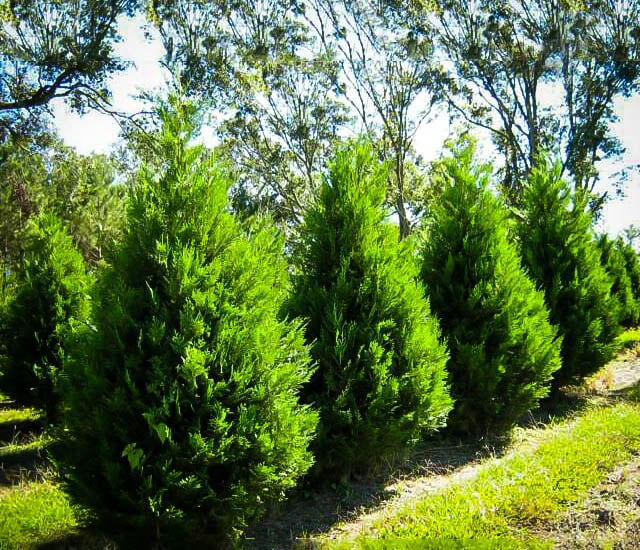
Beautiful hybrid trees that develop quickly are Leyland cypress trees. In gardens that call for a quick-growing evergreen plant, they excel at providing towering coverage. They provide substantial shade and efficient windscreens, making them great natural boundaries for country estates and regions with wide and open land. Planting distances for these trees should be at least 15 feet from the plants that cannot tolerate shade. They can be planted in autumn or from late winter to early spring, and in just a few growing seasons, they can develop into rather mature trees.
18. Hydrangeas
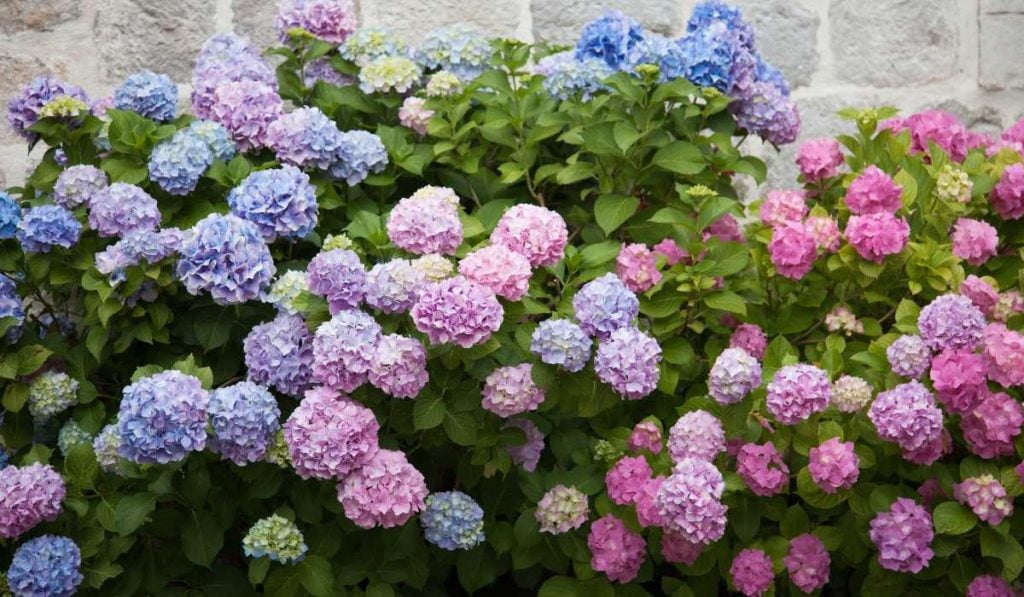
They are popular bushes that produce large and colourful blooms. They can reach a size of 8ft in both height and width, making them a great option for a natural fence. However, it is important to keep in mind for the planters that these plants will lose their leaves in the fall, so they will not provide year-round privacy. On the brighter side of these plants, the beautiful seasonal flowers they produce are a lovely addition to any landscape. In addition to these, they are also easy to care for. Moist, well-drained soil and partial shade are what they prefer to thrive.
Final Takeaway
Based on the list of screening plants mentioned above, it can be said that there are various types of species that can be used to create a natural fence or screen for privacy in the small gardens of the gardeners. Each type of plant has its own features and benefits, such as fast growth, evergreen foliage, colourful blooms, or dense branching.
It is also important to consider factors like the size and layout of the garden, the amount of sunlight they receive, and the type of soil present when gardeners are choosing plants for creating a natural fence. With careful planning and selection, growers can create a beautiful and functional fence that will provide and enhance the overall look of the garden.
Moreover, what is also considered while choosing one of these plants is whether they will provide year-round privacy or if they will only be effective during certain seasons because this can impact the overall privacy goals of the planters.
Frequently Asked Questions
Which Plant Is the Fast-Growing Evergreen Screening Plant?
The Leyland Cypress Tree is considered the fastest-growing evergreen screening plant by gardeners, with a mature trunk being able to lengthen by a whole meter in just a year. It is crucial to understand that these plants are not recommended for small properties or as neighbouring trees.
Which Evergreen Screening Plants Grow Really Tall for Privacy?
Leyland Cypress, Green Giant, and Arborvitae are some of such plants that can reach heights of 40 to 60 ft or more if left untrimmed. It is also important to keep a note that they all require adequate space to grow and may not be suitable for small yards. Additionally, regular pruning and maintenance may be necessary to keep them at desired height and shape.
What Soil Type of Best for Growing Screening Plants?
They can grow in various soil types, but usually, they prefer well-draining nutrient-rich soil; the soil pH level can vary depending on the specific plant species, but most plants prefer a slightly acidic to neutral soil pH range of 6,0 to 7.0. It is always best to check the soil requirements for the specific plants you want to grow to ensure optimal growth and health.

